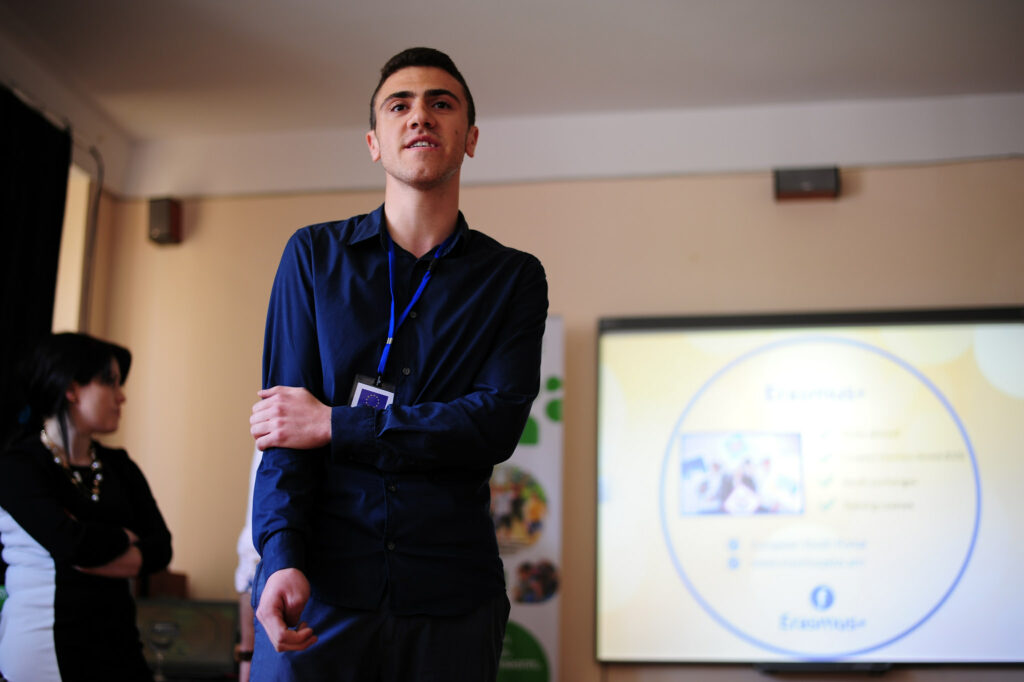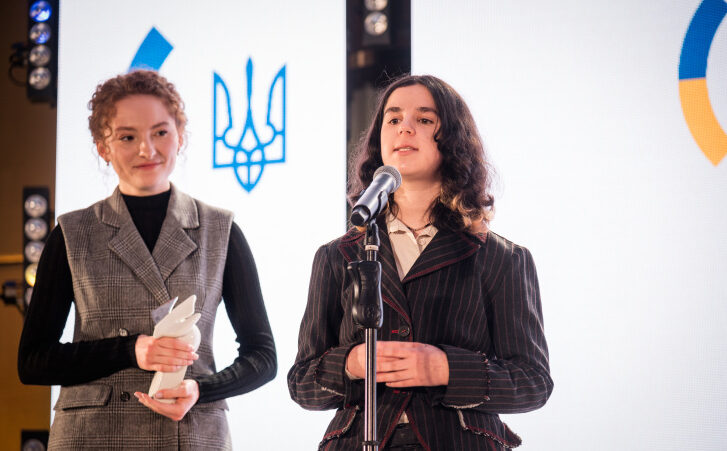
EU4U: How the European Voluntary Service (EVS) can help us shape a more youth-friendly society
Engage – Connect – Empower.
With these three key words the European Commission hit the target with its new proposed EU Youth Strategy for 2019 to 2027, emphasising real problems for youth, and the EU in general.
I started my European Voluntary Service (EVS) on October 2 of 2018 in the little town of Ozalj in Croatia. I came to Croatia right after huge political and social changes in Armenia, thinking that I would find a role model for the type of society we seek to create in our country. I came with preconceived ideas about European youth, and always believed that youth was at the heart of EU policy making and society building.
I was wrong.
With unrest in some of the Member States, and rising pessimism and fears about the EU’s future, its youth needs to be Engaged, Connected and Empowered now more than before.
The EU has helped Armenia build a strong civil society and NGO sector, which has taught our young people to not be afraid of making their voices heard and of being game-changers in society. Opportunities like Erasmus+, TC/YE and EVS have educated local, active youth and taught them the skills needed for society-building.
But now the EU’s own youth need to be inspired to take charge, and there is no need to reinvent the wheel.
EVS and Erasmus+ are not just opportunities for Neighbourhood countries, but are even more important for the EU itself. The “Young European Ambassadors” initiative gave me a chance to spend time in schools and universities in Armenia, meeting students who are interested in EU projects but lack information about them. As an EVS volunteer holding Erasmus+ workshops in towns near Zagreb each week, I see the same problem here as well.
In these workshops, I inform locals about our social networks and web-pages, and many of them are surprised by how easy it is to study for a semester in your dream university in Germany. And they are always curious about the opportunities for EU citizens to become part of social processes by volunteering in the Caucasus (a mystery region for most of the Croats I met), just as young people living in border-villages of Armenia have the chance to travel to Paris.
Information is all that these people need to value the EU more, and to see what the EU can do for them personally.
I remember, as it if it were yesterday, writing my motivation letter for my EVS project called A.L.I.V.E (Act, Learn, Improve, Volunteer, Empower). “Volunteering is one of the most important parts of today’s society and EVS makes you better as a volunteer, as a citizen, as a human being”
EVS gives young people the opportunity to be more independent. It makes them work and volunteer in an unfamiliar society with a different mindset and structure of civil processes. As a volunteers you become flexible, tolerant and strong. Strong individuals are the basis in which every society is built, and it’s the most important factor for a stronger Europe. With the help of EVS, the EU connects these people and helps them work together.
EVS will be changed this year. It will lose its place to a new EU initiative. The European Solidarity Corps (ESC) is the European Union’s new program which creates opportunities for young people to volunteer or work in projects that benefit communities and people around Europe. The European Solidarity Corps brings together two complementary strands: volunteering and occupational activities.
The volunteering strand has its origins in the EVS and it offers young people the opportunity to carry out full-time voluntary service of between two and twelve months in another country. What’s more, participants still have occupational opportunities like job-shadowing, internships and traineeships. The mission of the ESC, as indicated in the European Youth Portal, is to bring young people together and build a more inclusive society, to support vulnerable people, and to respond to societal challenges. It offers an inspiring and empowering experience for young people who want to help, learn and develop.
20 years of the EVS has created a generation of 100,000 skilled young people; 100.000 people leading Europe’s charge for a more youth-oriented future society. The main challenge for them should be spreading information about the EVS which means spreading the voice of cultural awareness, tolerance, peace and mutual understanding between societies.
 Ashot Tadevosyan
Ashot Tadevosyan
LATEST

Building Europe: Poland’s experience of joining the European Union and lessons for Ukraine

World Health Day 2024: My Health, My Right

EUREKA MEETS EUROPE – opportunities to develop and study. My experience

Can you wear pink in the workplace?

Go where your deepest fears lie: finding the courage to overcome gender barriers in STEM
More campaign pages:
Interested in the latest news and opportunities?
This website is managed by the EU-funded Regional Communication Programme for the Eastern Neighbourhood ('EU NEIGHBOURS east’), which complements and supports the communication of the Delegations of the European Union in the Eastern partner countries, and works under the guidance of the European Commission’s Directorate-General for Neighbourhood Policy and Enlargement Negotiations, and the European External Action Service. EU NEIGHBOURS east is implemented by a GOPA PACE-led consortium. It is part of the larger Neighbourhood Communication Programme (2020-2024) for the EU's Eastern and Southern Neighbourhood, which also includes 'EU NEIGHBOURS south’ project that runs the EU Neighbours portal.

The information on this site is subject to a Disclaimer and Protection of personal data. © European Union,